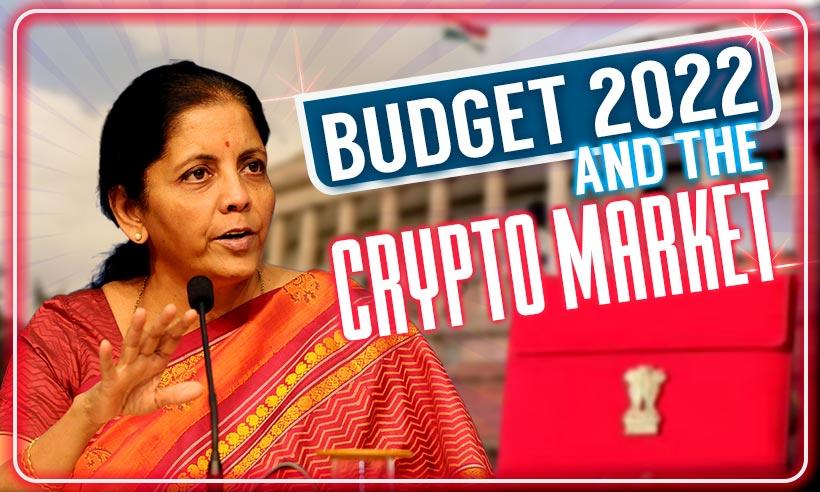From 30% Tax on Gains to a 1% TDS on Payments, Here’s What 2022 Budget Got For Crypto
Budget 2022-23 also proposed a 1% TDS on virtual currency payments exceeding Rs 10,000 per year, as well as taxation of such gifts in the hands of the recipient. The TDS threshold limit would be Rs 50,000 per year for specified persons, which would include individuals and HUFs required to have their accounts audited under the I-T Act. Furthermore, no deduction for any expenditure or allowance shall be allowed when calculating income from transactions in such assets. It's most likely the first time an industry has applauded the imposition of a steep tax on the asset class in which it trades.
TDS Has Been Proposed to Track the Money Trail in Cryptocurrencies
She stated that there has been a phenomenal increase in transactions in virtual digital assets while introducing a scheme for the taxation of virtual digital assets in the Budget. Because of the magnitude and frequency of these transactions, a specific tax regime is required. According to her, the TDS has been proposed to track the money trail in cryptocurrencies. It is also proposed that the recipient be taxed on the gift of the virtual digital asset.
"Transactions in the crypto world will be taxed," she stated.
TDS will be levied if the transfer is made in cash or other virtual currencies, according to the Budget memorandum.
Ashish Singhal, founder and Chief Executive Officer of CoinSwitch said,
“The regulatory guidance on tax from the government furthers the mainstreaming excitement of this emerging asset class with over $6 billion worth of investments in India. It is also the gateway to the future decentralized world, aka Web3.0. The budget provides clarity on taxation and shows the government’s intent to take a business-friendly approach while protecting the interest of consumers and the exchequer.”
The Introduction of Digital Rupee
During her Budget 2022 presentation address, Sitharaman stated that India will pursue Central Bank Sponsored Digital Currency, which will be known as the Digital Rupee. A digital (electronic) variant of fiat currency is known as digital currency. Digital currency can be exchanged for physical currency. The Reserve Bank of India will issue the Digital Rupee (RBI). Blockchain will be the fundamental technology that will power the Digital Rupee.
Blockchain technology also enables bitcoin and non-fungible tokens (NFTs), according to Balaji Kandregula, Vice President of MSRvantage. It is a distributed ledger that is updated in real-time.
The government will completely manage and control the proposed digital rupee and its pricing. The establishment of CBDC, according to the Union Budget 2022 paper, will give a substantial boost to the digital sector. 'Digitized currency will also result in a more efficient and cost-effective currency management system.'
The RBI's announcement on the launch of a Digital Rupee using blockchain, according to Avinash Shekhar, CEO of ZebPay, will familiarise Indians with the benefits and efficiency of virtual currency, whetting their appetite for crypto, blockchain, and the plethora of innovations and employment opportunities that these technologies can foster.
Regulations In Line
On cryptocurrency regulation, Sitharaman stated that the government is consulting with stakeholders on how to regulate virtual assets. There is currently no rule or prohibition in place in the country regarding the usage of cryptocurrencies. The Supreme Court of India overturned the RBI ruling prohibiting banks from enabling crypto transactions in March 2020. In an earlier statement to the Lok Sabha, the Finance Minister stated that the government does not collect data on Bitcoin transactions.
The government has yet to introduce The Cryptocurrency and Regulation of Official Digital Currency Bill, despite the Finance Minister's caution on the subject. It sought to 'establish a facilitative framework for the formation of the official digital currency to be issued by the RBI' and was scheduled for introduction during the previous winter session of Parliament. It aimed to 'prohibit any private cryptocurrencies,' with 'limited exceptions to encourage the underlying technology.' Now, with the taxes in place, we can expect that the Indian government is in favor of cryptocurrencies.
From A Ban To Legal Taxation, India has Come a Long Way
Investors and companies in the virtual digital asset and cryptocurrency ecosystem applauded Nirmala Sitharaman's decision to tax 'any revenue from the transfer of any virtual digital asset' at 30%, describing it as a step toward 'mainstreaming excitement' about the asset class. Cryptocurrency investors and exchanges feel that the government's decision to tax them has provided them with clarity and is the first step toward the asset class' ultimate legitimization. The sector also applauded the government's decision to create its digital rupee, which is expected to be launched by the RBI, in the hopes of familiarising both investors and non-investors with virtual currency and 'creating an appetite' for the asset class.

